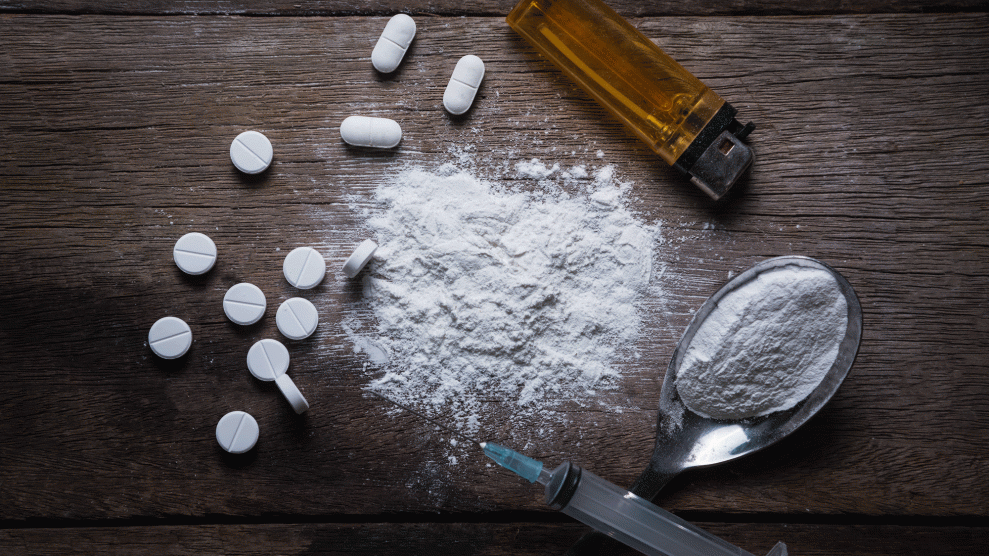Last Thursday, for the first time in history, the Food and Drug Administration asked a pharmaceutical company to take an opioid painkiller off the market. The agency found that the benefits of the medication, Opana ER, were outweighed by its risks: It is frequently snorted and injected, and linked to HIV outbreaks, the spread of hepatitis C, and a blood clotting disorder called thrombotic microangiopathy.
“We are facing an opioid epidemic—a public health crisis, and we must take all necessary steps to reduce the scope of opioid misuse and abuse,” said FDA Commissioner Dr. Scott Gottlieb in a statement. “We will continue to take regulatory steps when we see situations where an opioid product’s risks outweigh its benefits, not only for its intended patient population but also in regard to its potential for misuse and abuse,” said Gottlieb.
The FDA’s request may indicate that the commissioner, accused of cozy relationships with pharmaceutical companies, is taking a tough stance on painkiller prescribing, which has laid the foundation for today’s soaring overdose epidemic. “I am pleased, but not because I think that this one move by itself will have much impact,” says Dr. Andrew Kolodny, who researches opioid policy at Brandeis University and directs Physicians for Responsible Opioid Prescribing. “I’m hopeful that this signals a change at FDA—and that Opana might be just the first opioid that they’ll consider taking off the market. It’s too soon to tell.”
Opana ER (for extended release) was created by Endo Pharmaceuticals and approved by the FDA in 2006. After finding that drug users crushed and snorted the drug, taking in 12 hours worth of medication instantaneously, Endo introduced a reformulated version in 2012, which had a hard shell that Endo claimed made the drug more difficult to abuse. This decision may have been motivated by more than just public safety—as NPR noted, Endo faced loss of patent protection without a reformulation. But the FDA found that the reformulation made abuse more likely than the former version: instead of snorting it, users took to injecting it—leading to a cluster of thrombotic microangiopathy deaths in Tennessee in 2012 and Indiana’s HIV outbreak in 2014 and 2015.
The FDA’s decision doesn’t necessarily indicate that Opana ER is more abusable than other opioid painkillers still on the market, but rather that it is riskier than the previous (now generic) version. In fact, Opana ER is chemically similar to a number of other painkillers, notes Kolodny. High dosage painkiller pills in particular are easily abused: Without tolerance to opioids, experimenting with one 80-milligram OxyContin pill or Subsys prescription fentanyl spray could cause an overdose. Critics worry that even “abuse-deterrent” versions of painkillers, which typically are harder to crush or dissolve and are marketed as a safe alternative to other opioids, are still abusable. “Abuse-deterrent formulations are no less addictive and no less effective and they are mostly going to take our eye off the ball,” says Dr. Caleb Alexander, co-director of Johns Hopkins University’s Center for Drug Safety and Effectiveness.
Whether or not Endo will comply remains to be seen; the company is “evaluating the full range of potential options as we determine the appropriate path forward,” according to a prepared statement. Since last Thursday’s announcement, its stock price has plummeted by nearly 20 percent. If Endo doesn’t pull its product, the FDA “intends to take steps to formally require its removal by withdrawing approval,” according to a press release.

















